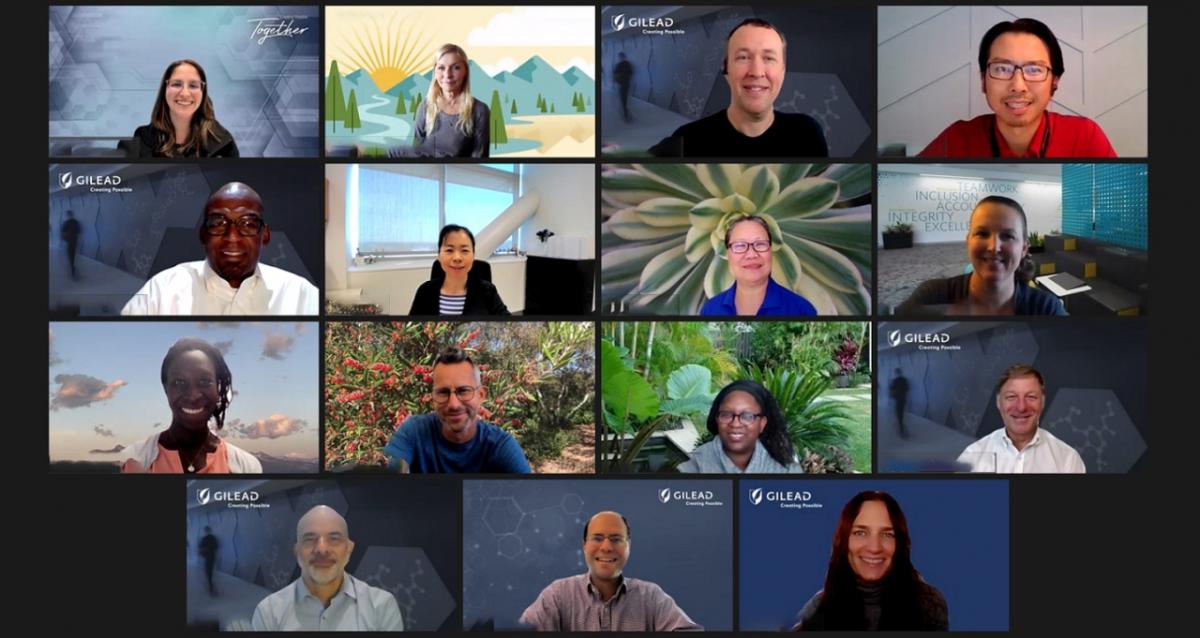Gilead Launches Pharmaceutical Education Program to Increase Workplace Diversity

Gilead Launches Pharmaceutical Education Program to Increase Workplace Diversity
When he began teaching biological science at North Carolina Agricultural and Technical State University 11 years ago, it didn’t take long for Dr. Joseph Graves to notice a shortage of opportunities in pharmaceutical research and development for Black students. While A&T has a strong science program, Joseph says it’s been an ongoing struggle for women and underrepresented populations to enter the scientific workforce, and more specifically, find roles in industry.
“The majority of scientific research in the developed, economically powerful world occurs in the private sector,” he explains. “But the numbers of underrepresented groups in those spaces are ridiculously small.”
Now, Gilead is working to change that. Last month, the company launched a first-of-its-kind educational partnership with Historically Black Colleges and Universities (HBCUs) and Hispanic-Serving Institutions (HSIs). The program is a two-semester course, offering underrepresented students the opportunity to learn how drug development and manufacturing work in the private sector. The hope is it will support and enhance the students’ interest and engagement in this work, while also encouraging some of the students to consider internship and future employment opportunities at Gilead.
The program is part of Gilead’s overall strategy to increase diversity within the company. In brainstorming creative ways to attract candidates who are early in their professional careers, the idea to create a curriculum at academic institutions that serve diverse populations was born. The company partnered on a pilot program with A&T, the largest HBCU in the country, and Cal Poly Pomona, an HSI in Southern California.
In addition to boosting racial diversity at Gilead, there’s a desire to help carve a clear career path for entry-level employees, too — something Stanley Blackwell, Executive Director, Talent Acquisition, believes offers great benefits. By providing an educational pipeline with an internship and a possible job offer, it will be easier for new professionals to begin a career in their chosen field more quickly.
“This partnership provides hands-on experience and access to industry early on, so that the students can really understand the opportunities that are out there,” he says. “It’s helping them learn where they want to be 10 years into their career versus working in their career for 10 years and then deciding.”
Richard Polniaszek, Vice President, Process Development, championed the idea and has been dedicated to conceptualizing and implementing the program — with a goal of creating deeper connections with potential new employees while addressing a societal need to accelerate the growth of scientists from underrepresented parts of society into the pharmaceutical sector.
“Typically, when corporations go to universities, they tell students they can come and work and learn during a summer internship,” he explains. “We came up with this idea to go beyond that, where we offer a course over the period of a year in order to create an ongoing relationship between students, the university, faculty and our organization – with the emphasis on a relationship rather than just a one-off internship.”
The development of a high-level course, targeted at advanced undergraduate and early graduate students, took more than a dozen Gilead employees a full year to develop. Vahid Zia, Executive Director, Formulation and Process Development, says it’s been a challenge to create a course that both holds students’ interest and addresses the complexities and nuances of pharmaceutical manufacturing.
“We want a lively class that enables a two-way conversation, as opposed to just us throwing out a bunch of information,” he says, noting that the instructors want to ensure the students walk away with a deep understanding of how medicines are developed.
Gilead designed the course content, working closely with its academic partners to make sure it’s presented in a way that is relatable for the students. When A&T alum Larrishia Stanley joined Gilead’s Talent Acquisition team last year, she was a natural fit to lead the partnership.
"Having the opportunity to work with early talent and partner with HBCUs and HSIs is very rewarding and allows me to pay it forward,” says Larrishia of her work on the program. “It’s one of the reasons I wanted to come to Gilead.”
More than a dozen Gilead employees will lecture during the first semester, during which all sessions are being held virtually. The curriculum covers topics such as Process and Analytical Chemistry, Commercial Manufacturing and Supply Chain and Distribution. With students enrolled and the first classes under way, those involved are already starting to think ahead.
“This program opens a pathway to increase the numbers of underrepresented students who will pursue a career in private research, at a time when pharmaceutical research may be one of the most important enterprises in the world,” says Joseph. “Doing it right and having new voices at the table to help it become better is an absolutely crucial thing.”

